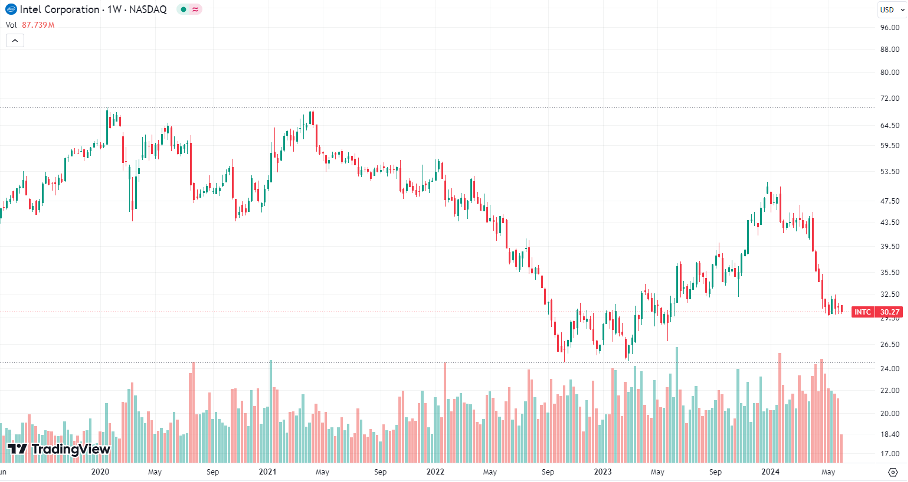Xeon Server Processors
Intel's introduction of the sixth-generation Xeon chips is a significant step in its efforts to regain lost ground in the data centre market. Over the past year, Intel has seen its share of the data center market for x86 chips decline by 5.6 percentage points, now holding 76.4% while Advanced Micro Devices (NASDAQ: AMD) has captured 23.6%, according to Mercury Research. This erosion in market share can be largely attributed to stumbles in Intel's manufacturing process, allowing AMD to gain traction with chips fabricated by Taiwan Semiconductor Manufacturing Co (TSMC).
The new Xeon processors are available in two main variants: high-performance and efficient models. The efficiency model, which reduces the required server racks by approximately 67% to achieve the same computing power as Intel's second-generation chips, is particularly appealing for media, websites, and database calculations. Intel's CEO, Pat Gelsinger, succinctly summarized this advantage at the Computex trade fair in Taipei, stating, "Simply put, performance up, power down." The more powerful performance model is tailored for demanding AI computations and other intensive tasks. The efficiency model is available now, with the performance model expected in the third quarter.
Gaudi 3 AI Accelerator Chips: A Competitive Edge
Intel's announcement of the Gaudi 3 AI accelerator chips, priced significantly lower than competitors, is another strategic manoeuvre worth noting. The Gaudi 3 accelerator kit, which includes eight AI chips, is priced at about $125,000. In contrast, Nvidia's comparable HGX server system with eight H100 AI chips can exceed $300,000, according to Thinkmate. This pricing strategy positions Gaudi 3 as a cost-effective alternative to Nvidia's offerings, potentially attracting more customers seeking AI capabilities.
Investment Perspective
From an investment standpoint, Intel's recent product launches and strategic pricing decisions demonstrate a strong commitment to regaining its competitive edge in the semiconductor market. The introduction of the sixth-generation Xeon processors and the Gaudi 3 AI accelerator chips, coupled with advancements in laptop technology, suggest a promising future for Intel. The company's focus on reducing power consumption and enhancing performance aligns well with current market demands, particularly in the AI and data centre sectors.

Performance of Intel Cororation´s stock over 5 years. Source: tradingview.com
Conclusion
Intel's proactive approach to addressing its market share decline and advancing its technological capabilities is commendable. The competitive pricing of the Gaudi 3 AI chips and the innovative features of the Lunar Lake laptop chip underscore Intel's potential to strengthen its position in the semiconductor industry. As the company continues to innovate and expand its product offering, it remains a key player that I will continue to monitor as I plan to increase my stake in the company.








